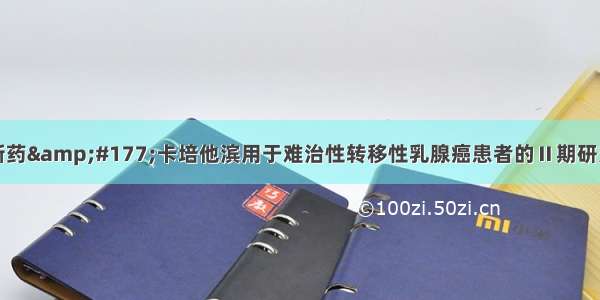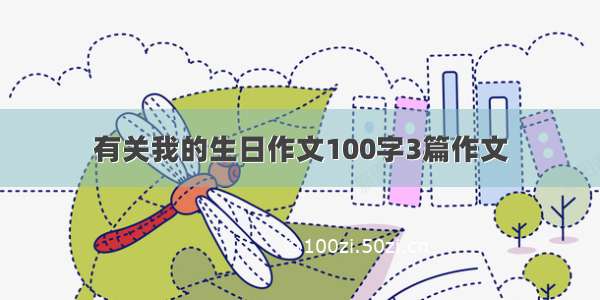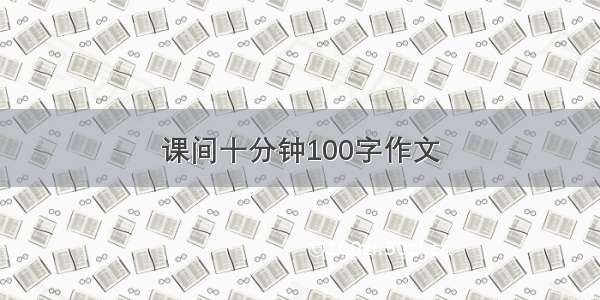
转移性乳腺癌治疗经常发生耐药,至今仍是巨大的临床挑战,可以克服耐药性的替代药物将提供治疗新选择。
8月11日,美国华裔血液及肿瘤专家学会(CAHON)官方期刊、英国《生物医学中心》旗下《血液学肿瘤学杂志》正式发表中国医学科学院北京协和医学院肿瘤医院国家癌症中心(张频、徐兵河)、天津医科大学附属肿瘤医院(佟仲生)、山西省肿瘤医院(田富国)、山东省肿瘤医院(王永胜)、解放军总医院(杨俊兰)、天津市人民医院(李维廉)、北京大学肿瘤医院(邸立军)、河北省肿瘤医院(刘巍)、北京华昊中天生物技术有限公司的Ⅱ期研究报告,评估了一种中国原研埃博霉素衍生新药UTD1±卡培他滨用于对蒽环类和紫杉类耐药转移性乳腺癌患者的有效性与安全性。
20世纪90年代,天然埃博霉素在微生物代谢产物中被发现,此后经过不断研究,证实埃博霉素与紫杉醇具有相似作用机制,可以抑制细胞分裂过程中微管解聚,基础研究也发现埃博霉素的抗肿瘤特性优于紫杉醇。美国FDA批准了第一个埃博霉素衍生药物伊沙匹隆治疗乳腺癌,虽然前期国际研究发现伊沙匹隆联合卡培他滨在转移性乳腺癌中疗效值得肯定,但存在较大毒副作用,患者综合获益不佳。
UTD1(utidelone)是中国自主研发,利用基因工程育种技术改造埃博霉素产生菌制备的新型埃博霉素类似物,临床前研究发现UTD1使多个不同异种移植瘤均有缩小。单药UTD1临床研究也发现其在抗肿瘤活性方面具有一定的应用前景。早在,美国临床肿瘤学会(ASCO)第50届年会,UTD1治疗转移性乳腺癌的Ⅱ期非盲临床研究就已入选壁报,本文即为该壁报全文,也是UTD1第一篇正式发表的全文。
在两项(一项单药,一项联合)非盲非对照临床研究中,曾接受包括蒽环类和/或紫杉类治疗方案的转移性乳腺癌患者,分别给予UTD1(25~35mg/m²,每天1次静脉注射,第1~5天)和卡培他滨(2000mg/m²,每天等分为2次口服,第1~14天)或UTD1(40mg/m²,每天1次静脉注射,第1~5天)。每个治疗周期为21天,按照标准最多不超过6个治疗周期。
结果发现,两项研究合并后,33例患者完成中位6个治疗周期,即在研究方案标准下患者能够接受的最多周期。在32例可评估有效性的患者中,客观有效率为42.4%(95%置信区间:26.6~60.9),中位无进展生存7.9个月(95%置信区间:6.1~9.8)。在单药治疗研究中,63例患者的客观有效率28.57 %(95%置信区间:18.4~40.6),中位无进展生存5.4个月(95%置信区间:2.9~9.8)。
在两项研究中,UTD1相关性常见毒性包括周围神经病变、乏力、肌痛、关节痛,但是毒性有限并可控。值得注意的是,与同类其他药物相比,所见骨髓抑制非常轻微、肝肾毒性低、胃肠道毒性作用非常有限。
因此,UTD1在晚期蒽环类/紫杉类难治性转移性乳腺癌患者治疗中表现出鼓舞人心的有效性、耐受性和安全性,并有可能作为克服耐药性的治疗新方案。
J Hematol Oncol. Aug 11;9(1):68.
Phase II trial of utidelone as monotherapy or in combination with capecitabine in heavily pretreated metastatic breast cancer patients.
Zhang P, Tong Z, Tian F, Wang Y, Yang J, Li W, Di L, Liu W, Tang L, Qiu R, Xu B.
National Cancer Center/Cancer Hospital, Chinese Academy of Medical Sciences and Peking Union Medical College, Beijing, China; Cancer Hospital, Tianjin Medical University, Tianjin, China; Shanxi Cancer Hospital, Taiyuan, Shanxi, China; Shandong Cancer Hospital, Jinan, Shandong, China; PLA General Hospital, Beijing, China; Tianjin People's Hospital, Tianjin, China; Cancer Hospital, Peking University, Beijing, China; Hebei Cancer Hospital, Shijiazhuang, Hebei, China; Beijing Biostar Technologies, Ltd., Beijing, China.
BACKGROUND: The treatment of metastatic breast cancer (MBC) remains a great clinical challenge as drug resistance frequently develops. Alternative agents that can overcome drug resistance would offer new therapeutic options. The primary aim of this phase II study was to evaluate the efficacy and safety of utidelone as a monotherapy or in combination with capecitabine in metastatic breast cancer patients previously treated with and resistant to anthracyclines and taxanes.
METHODS: In two open-label, noncomparative clinical studies, patients with metastatic breast cancer who previously received anthracycline- and/or taxane-containing regimens were given (1) 25 to 35 mg/m(2)/day intravenously infused utidelone, once daily for 5 days, in combination with 14 days of 2000 mg/m(2) capecitabine, divided in two equal daily oral doses or (2) 40 mg/m(2)/day intravenously infused utidelone, once daily for 5 days. These regimens were administered per each 21-day treatment cycle, and the maximum of treatment cycles allowed per protocol is 6. Objective response rate (ORR), progression-free survival (PFS), and tolerability were evaluated.
RESULTS: In the combination study, 33 patients completed a median of 6 cycles of therapy, which was the highest cycles a trial patient could receive under the criteria of the study protocol. Efficacy was evaluated (n = 32) with an ORR of 42.4 % (FAS, 95 % CI, 26.6, 60.9) and a median PFS of 7.9 (FAS, 95 % CI, 6.1, 9.8) months. The monotherapy study (n = 63) resulted in an ORR of 28.57 % (FAS, 95 % CI, 18.4, 40.6) and a median PFS of 5.4 (FAS, 95 % CI, 2.9, 9.8) months. In both studies, common toxicities associated with utidelone administration included peripheral neuropathy, fatigue, myalgia, and arthralgia, but the toxicities were limited and manageable. Notably, very mild myelosuppression, low liver and renal toxicities, and very limited gastrointestinal toxic effect were observed, in contrast to other agents in the same class.
CONCLUSIONS: Utidelone showed promising efficacy, tolerability, and advantageous safety profiles in the treatment of patients with advanced anthracycline/taxane-refractory metastatic breast cancer and may offer new treatment options to overcome drug resistance.
TRIAL REGISTRATION: CHiCTR-TRC-13004205, registered on August 15, .
KEYWORDS: Drug resistance; Metastatic breast cancer; Phase II trial; Utidelone
PMID: 27516093
DOI: 10.1186/s13045-016-0297-7















